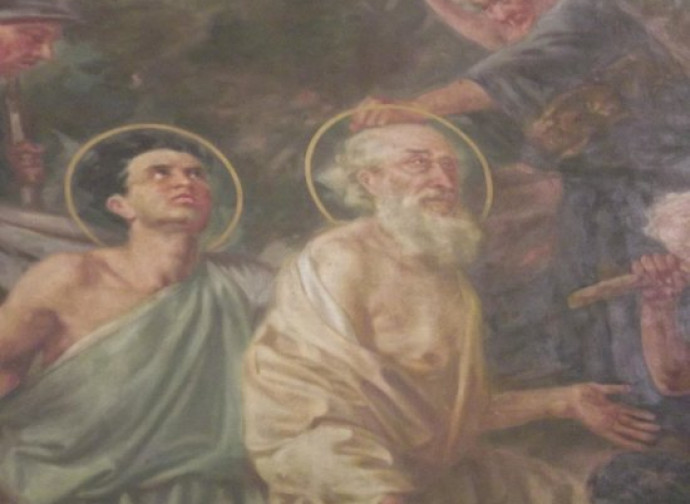Saints Marcellinus and Peter
In the early centuries of Christianity, Saints Marcellinus and Peter (†304), martyred during Diocletian's persecutions, enjoyed great popularity. We owe the oldest written record of their martyrdom to Saint Damasus (c. 305-384), the Pope who composed famous epigrams in honour of the martyrs and identified several sepulchres.

In the early centuries of Christianity, Saints Marcellinus and Peter (†304), martyred during Diocletian's persecutions, enjoyed great popularity. We owe the oldest written record of their martyrdom to Saint Damasus (c. 305-384), the Pope who composed famous epigrams in honour of the martyrs and identified several sepulchres. Damasus reported that he heard about Marcellinus and Peter when he was just a boy, directly from their executioner. According to Damasus’ account, the judge ordered the death sentence of the two Christians to be carried out in the middle of a forest, so that the place of their burial would remain unknown to the other faithful. Marcellinus and Peter were forced to dig their own graves and then beheaded. A pious matron named Lucilla became aware of the fact and had their bodies moved and given a dignified burial.
From the Martyrologium Hieronymianum, which already commemorated them on 2 June, we learn that Marcellinus was a priest and Peter an exorcist (one of the ancient minor orders, which involved the recitation of particular prayers on the catechumens and if necessary on the possessed). Their tomb was sited on the third mile of Rome’s Via Labicana, in the catacombs Ad Duas Lauros (“Near the two laurels”, in today's area of Tor Pignattara), then named after the two martyrs. As reported in the Liber Pontificalis, during the pontificate of St. Sylvester I (314-335) this area was donated to the Church by St. Helena, mother of Emperor Constantine. He had a basilica built in their honour, where today stands the Church of Saints Marcellinus and Peter in Duas Lauros. To confirm the importance of their worship, Vigilius (Pope from 537 to 555) had their names included in the Roman Canon, the oldest Eucharistic prayer in the Church.
